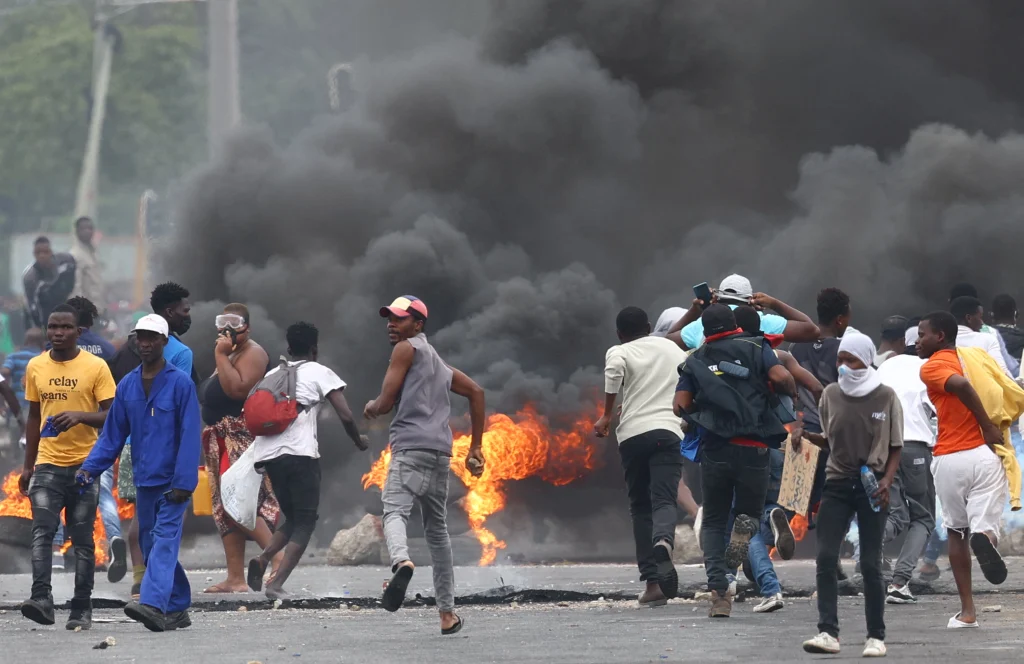Across Africa, a new generation is rising. From Kenya to Madagascar and Morocco, young people—often referred to as Generation Z—are taking to the streets to demand justice, equality, and a future that works for them. Mobilized through social media and driven by frustration with unfulfilled promises, they are challenging the political status quo and forcing governments to listen.
Political analyst Ryan Cummings, who specializes in African security and governance dynamics, says these youth-led uprisings reflect a deeper generational shift.
“Africa’s Gen Z protests reveal a growing gap between a young, restless population and the quality of governance they are forced to live under,” he told Wall Africa Journal. “This generation understands the power of connectivity and collective action. They no longer wait for permission to demand change.”
Three Nations, One Message: Justice and Opportunity
The protests sweeping parts of Africa share a common spirit—anger at corruption, poor governance, and economic exclusion. Yet each country’s story is unique.
In Kenya, demonstrations erupted after the government proposed a controversial tax bill, sparking weeks of unrest. The death of teacher and influencer Albert Omondi Ojwang while in police custody became a rallying cry for thousands of young Kenyans. At least 31 people were killed as police cracked down on protesters, and reports of missing detainees continue to stir public outrage.
In Madagascar, anger over unemployment and inequality turned violent. Protests have led to looting and clashes with security forces, leaving 22 people dead so far. Despite President Andry Rajoelina’s call for dialogue, young protesters have refused to back down, accusing the government of ignoring their struggles.
Meanwhile in Morocco, the “GenZ 212” movement has chosen a different path—nonviolent resistance. Although three protesters were killed early in the demonstrations, organizers continue to promote peaceful activism, calling for social justice and political accountability.
“A Reawakening of Africa’s Youth”
Cummings argues that what’s happening now is not entirely new but represents a renewal of Africa’s long tradition of youth-driven activism.
“From South Africa’s anti-apartheid movements to Sudan’s 2019 revolution and Nigeria’s #EndSARS campaign, young people have always been central to Africa’s struggle for justice,” he said. “What’s different today is the speed and scale of mobilization through digital platforms.”
Social media platforms like X, Instagram, Facebook, and Reddit have become digital battlegrounds for civic engagement, allowing movements to spread rapidly across borders. Cummings warns, however, that such momentum also comes with challenges.
“The biggest weakness of these movements is their lack of centralized leadership,” he explained. “Without coordination, protests can lose direction or collapse into disorganization. Leadership is vital for negotiation and for preventing chaos that might undermine legitimate demands.”
Can African Governments Keep Up?
For many governments, these movements pose a new kind of challenge. Gen Z’s demands are not limited to economic opportunities—they include transparency, justice, and a voice in decision-making.
“Most African states already have youth employment or development policies on paper,” Cummings noted. “The real problem lies in implementation. Patronage politics and elite self-interest continue to block progress. Until governance becomes truly inclusive, more youth uprisings are inevitable.”
Across the continent, unemployment, inflation, and corruption continue to erode trust in traditional politics. Experts say that unless governments start delivering results, protests could become a defining political feature of the next decade.
Global Attention and Diplomatic Pressure
The rise of Africa’s Gen Z activism is also reshaping how the continent interacts with the world. Thanks to social media visibility, local protests quickly attract international attention, prompting responses from global human rights groups and foreign governments.
Cummings believes this growing awareness could influence foreign policy itself:
“Youth-led protests will inevitably affect how African states engage externally,” he said. “Young citizens are increasingly pressuring their leaders to adopt foreign policies that serve national interests, not elite or foreign agendas.”
A Generation That Refuses Silence
Africa’s youth are no longer passive observers of their political destiny. They are demanding accountability, innovation, and dignity—and doing so in ways that transcend borders.
Whether this wave of youth activism marks the beginning of a new political era or triggers more state repression remains to be seen. But one thing is certain: Africa’s Gen Z is not just calling for change—they are becoming the change.



